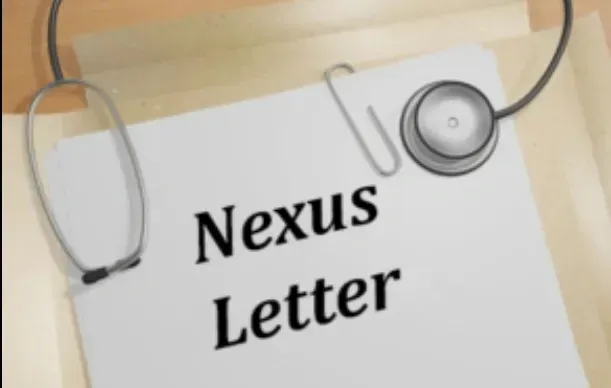When filing a VA disability claim, one of the most critical pieces of evidence a veteran can provide is a NEXUS letter. This document can make the difference between an approved or denied claim by directly linking a veteran’s condition to their military service. But what exactly is a NEXUS letter, and why is it so important?
What Is a NEXUS Letter?
A NEXUS letter is a medical document written by a qualified healthcare provider—such as a doctor, specialist, or psychologist—that connects a veteran’s disability to their military service. The word “NEXUS” means connection, and that’s precisely what this letter provides: a clear medical opinion stating that a veteran’s condition is at least as likely as not related to their time in the military.
The VA evaluates disability claims based on three key elements:
- A Current Diagnosis – The veteran must have a medically recognized condition.
- An In-Service Event, Injury, or Exposure – There must be evidence of an incident in service that could have caused the condition.
- A Medical Link (NEXUS) Between the Condition and Service – A medical professional must state that the condition is at least as likely as not caused or aggravated by military service.
Without this crucial third element, a claim may be denied—even if a veteran has a diagnosis and evidence of an in-service event.
Why Is a NEXUS Letter Important?
A NEXUS letter strengthens a veteran’s case by providing the medical justification needed to establish service connection. The VA often denies claims due to a lack of medical evidence linking the condition to service, and a well-written NEXUS letter can fill that gap.
Here’s why a NEXUS letter is so important:
1. It Provides Medical Expertise
The VA is not required to assume a condition is service-connected without proof. A NEXUS letter from a licensed medical professional offers expert insight into how military service could have contributed to or aggravated a condition.
2. It Helps Overcome VA Claim Denials
Many veterans receive denial letters stating that their condition is not service-connected. A strong NEXUS letter can counteract that decision by providing the medical rationale the VA needs to reconsider the claim.
3. It Supports Secondary Service Connection Claims
Sometimes, a veteran’s disability isn’t directly caused by service but is a result of another service-connected condition. This is called a secondary service connection. A NEXUS letter can prove that one condition is aggravated by another, such as sleep apnea caused by PTSD or nerve damage due to a service-connected back injury.
4. It Increases the Chances of a Higher Disability Rating
A strong NEXUS letter doesn’t just help get a claim approved—it can also help veterans receive a higher disability rating. If a doctor explains the severity and long-term impact of a condition, the VA may assign a higher percentage rating, leading to greater compensation.
What Should a Strong NEXUS Letter Include?
A well-written NEXUS letter should include:
✅ A Clear Statement – The doctor must state their professional opinion that the condition is at least as likely as not related to military service.
✅ A Detailed Medical Rationale – The doctor should explain why they believe the condition is service-connected, citing medical research or personal experience treating veterans.
✅ A Review of Medical Records – The provider should reference service treatment records, VA medical records, and any relevant private medical records.
✅ The Doctor’s Credentials – The VA gives more weight to NEXUS letters from specialists in the relevant medical field.
Do All Veterans Need a NEXUS Letter?
Not all claims require a NEXUS letter. Veterans may not need one if:
- Their condition is automatically presumed service-connected (e.g., Agent Orange exposure, Gulf War Syndrome).
- They have overwhelming medical evidence in their VA records proving a direct connection.
However, if a claim has been denied or lacks strong medical documentation, a NEXUS letter can be the key to success.
How to Get a Strong NEXUS Letter
To obtain a strong NEXUS letter, veterans should:
✔️ Find a Qualified Medical Professional – Patriot NEXUS Letters has an entire staff of qualified medical/healthcare professionals to assist you with your letter. Our staff is experienced in VA claims. We offer a FREE CONSULTATION to make sure we partner you with the best health care professional for your claim.
✔️ Provide Comprehensive Medical Records – Include service treatment records, VA medical files, and private medical history.
✔️ Request Specific Language – The letter should clearly state that the condition is “at least as likely as not” related to military service with supporting medical evidence.
Final Thoughts
A NEXUS letter is a powerful tool that can significantly improve a veteran’s chances of getting their VA disability claim approved. It bridges the gap between a veteran’s service and their condition, providing the necessary medical evidence the VA needs to grant service connection.
For veterans struggling with a denied claim or lacking the medical link required, a strong NEXUS letter may be the missing piece to securing the benefits they rightfully deserve.
Need Help Getting a NEXUS Letter?
If you need a professionally written NEXUS letter from a qualified provider, contact us today! Our network of experienced doctors specializes in helping veterans prove their service connection and maximize their VA benefits.



